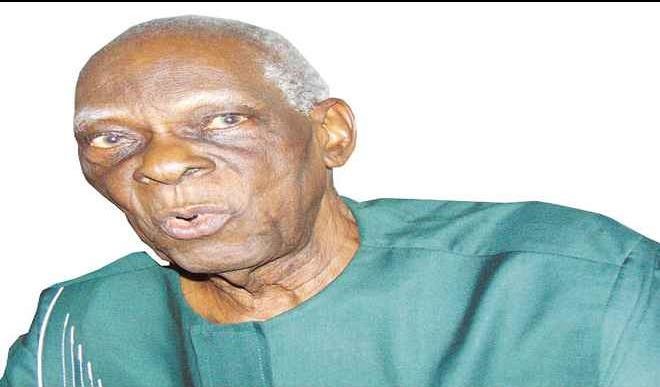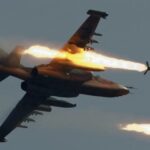
He doesn’t recall studying at any time. But he remembers emerging first at the end of every term, and surprising his teachers with good command of spoken English on his first day in school. He also recalls returning from school and immediately going to look for squirrels in the bush behind the family house, and the positive impact his late elder sister had on him.He thinks of the day his father died, and how the family circumstances altered somewhat at the time. But the church gave him a scholarship on account of his father’s good volition and deeds to the church. So, the young Rufus went to school, learning quickly that a good volition can only yield good fruit.
His words bear the weight of golden memories gathered over 85 rich years, “Throughout my young days, I didn’t study. There was no year that I was not first in my class. Infant classes comprise 3 years, but I only spent 1 year, and after the 1 year, they took me to primary 1. I jumped primary 1 to primary 2. The point I want to emphasise in all this is that every year, primary 1, primary 2, all the way to primary 6, I was always first, but I didn’t read. You will not come to my house and find me studying. This is why my own view about all this is totally different from others.I didn’t study. “
As a young boy, he remembers seeing war planes flying somewhere near his home during the second world war.This was in response to a question as to how his interest in aviation developed. He adds “That’s all I remember.” But it was at the Yaba Technical Institute that his interest in planes and the skies began to blossom. According to him “I saw a book at the library, and it was one of these teach yourself books by Longman.They wrote a series of teach yourself books, practically covering all aspects of human endeavor. I saw one titled Teach Yourself Flying, and I borrowed it, and when I read it my mind was already made up. As the Almighty would have it, the week after I read the book, an advertisement came out from the government for students with good results to apply to train as pilots.I went back again the second time to borrow it from the library.I took it as a textbook, and I boasted to my friends that if government wants four persons to train as pilots, if they want two, I will be one of the 2. After the interview, they took two, me and another. This was how I got into aviation.” This got him to the Air Service Training Institute, Hambrook, near Southampton, in the United Kingdom, where he had his training from 1954-1956. When he returned to Nigeria, he joined the “West African Airways (WAC) which ran flights from Lagos to Ghana, and Sierra Leone. WAC covered the whole of West Africa and went from Lagos all the way down the west coast to Dakar once a week. Then there were the internal flights too in Nigeria and Ghana which the airline serviced.”
On whether he was the first African to graduate from the school in the UK, he adds “No, I wasn’t the first African to graduate from the school. Captain Bob Hayes and Captain Obioma got to the school before me. We went to one of the finest aviation schools and we did marvelously well. I set a lot of records in the school, and the school will remember me up till tomorrow. I became a captain in 1962.” He laments a situation in which his classmates from Ghana became captains in 1958, while he and his Nigerian colleagues became captains in 1962.
The retired captain speaks of his early days in Nigeria Airways “In the early days we didn’t have much of a social life, because we were always short of pilots. As soon as we became independent in 1960, most of the European pilots left, and we were perennially short of pilots.We flew every day of the week, and on Saturday and Sunday, I will be on standby duty. But invariably, they will call me.I took my job very seriously. When they call me, even when I am not supposed to be called, I will put on my uniform, and I will go. The early days were hectic and the pilots were supposed to be entitled to 6 weeks annual leave every year. I will tell you I went on my first annual leave after five years. The chief pilot at that time said all I can give you is 6 weeks, if you don’t mind we combine all the outstanding leave and convert it to cash for you. But this should not be the case with aviation.”
One special occasion which remains evergreen was the moment when he landed a plane in Addis Ababa. This was sometime in 1962/63 “As soon as I landed the plane in Addis Ababa, the place went wild. Here I was, a black man, a black captain landing a plane in Addis Ababa.Jaja Nwachukwu who was our foreign minister at the time, and whom I flew to the OAU meeting, was so proud of me, very proud. All the Europeans gazed in amazement. This was similar to another occasion when two pilots landed a plane from Ghana at Lagos airport which had Kwame Nkrumah on board. There was pandemonium at the airport on that day.” He notes that the early crop of staff at Nigeria Airways “were dedicated and didn’t have accidents. People were dedicated to their jobs, but at the managerial level, that’s where we had problems. I think our problem started mainly when the first batch of air force men returned from their training in 1963 or thereabouts. One of them was put on the board of Nigeria Airways straightaway. That was the start of trouble in the Nigeria Airways, the meddling of the air force in a civilian airline. If you go to other countries, the two don’t mix. The civilian airline operates on a different principle to the air force.” He declares “The air force killed Nigeria Airways, and that was the major blow.They should never have introduced the air force into the Nigeria Airways.”
On the proposed national carrier, he argues “I understand the present government is trying to form the nucleus of another one, and at the same time we are starting from basics, from zero, that’s why I don’t think it’s feasible. Dont forget the scenario now, even big airlines in Europe are not making profit. The environment, financially, is very tight. It’s not the right atmosphere to start a new one.If you wish to start a new one, you must have an objective, either you wish to make money, or you want to have a flag carrier.” Mr. Orimoloye adds, while speaking on Nigeria Airways “It died slowly. For instance, I didn’t go on leave for seven years, and for that to happen, the airline was already dying. The signs were already there even during the early days. That was the beginning of the problem.”It was the sheer pressure of work that led to him developing high blood pressure which resulted in his being hospitalized in Liberia, and his subsequent early retirement from the airways. On this he states “As I retired and put in my letter, Nigeria Airways said they do not know how to pay me, because I am the first to retire. Many European pilots had been retiring, but now I was the first black to do so, and they do not know how to calculate my entitlements. Finally, a Polish pilot retired and they promptly settled him.” Like many, he is still waiting for his pension from the Nigeria Airways. He has been waiting since the early 80s. This has been Mr. Orimoloye’s lot. This tall artist, whose parlour is filled with many framed photos detailing the growth of his family over the years, plays the piano with skill I am told, and is an adherent of The Grail Message.He received an MFR from late President Umaru Yar’Adua in 2008 for his many services to the country.




